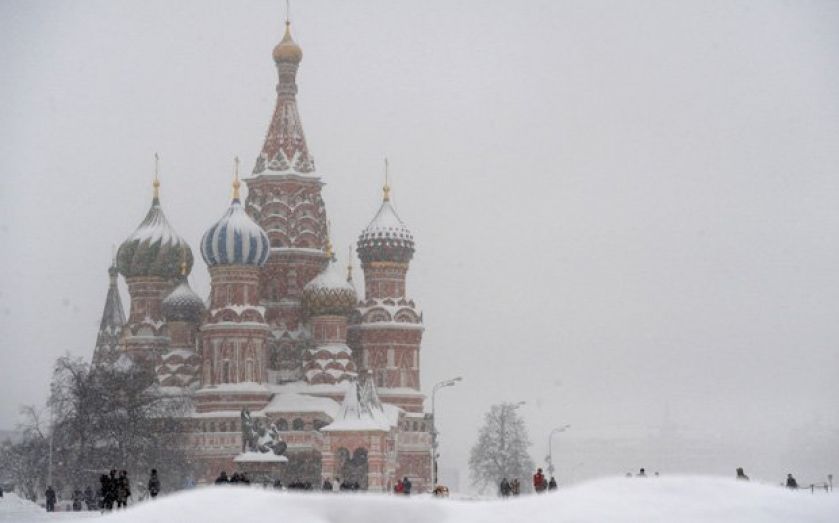Russia contagion: Global tailwinds should see the world through this crisis

IN A global economy, disaster can spread as easily as it strikes. The world is watching as news from Russia looks increasingly bleak, with potential implications for other regions. But as the situation continues to evolve, how could other countries be affected? Russia’s situation is troubling, but there are also plenty of forces at play in the international economy – from the falling price of oil, to monetary policy – which could offset the risks it poses elsewhere.
The Russian economy has been struggling for some time. While the country is now in a better financial position than during its last major crisis in 1998, and the risk of it defaulting on its debts is low, the corporate sector (and banks in particular) looks vulnerable. Due to sanctions imposed by other governments, many Russian companies are unable to refinance their debts, as access to international markets has essentially been cut off. Russia’s central bank will support the country’s major banks to some extent (an emergency package to shore up the banking system was announced yesterday), but defaults are still likely, particularly among the smaller ones.
Households are also vulnerable if inflation takes off on the back of the sharp currency depreciation: currently it is just below 10 per cent, but we could see it jump quickly into double digits as this situation progresses.
How did we get here? The recent oil price drop has had a substantial impact on Russia’s economy, but it is not the only issue the country faces. The ongoing Ukraine conflict, international sanctions, weak institutions and corruption present a cocktail of problems to aggravate the situation. Whether or not the oil price recovers meaningfully in the coming weeks, money is likely to continue to flow out of Russia, and the economy is headed deeper into recession. The only real question now is how far it can fall.
The implications for other countries are significant. Europe is vulnerable. Banks in Hungary, Austria, Germany, France and Italy have some exposure to Russia, and while it’s unlikely that Russia’s situation is enough to derail the Eurozone’s growth story altogether, it will certainly add to existing concerns for the region. This is yet another reason for ECB president Mario Draghi to be bold, and carry out much-needed stimulus.
Further afield, emerging market assets are being hit hard. However, they could snap back quickly, and we already saw some correction in markets yesterday. More generally, I expect a widening differentiation between emerging market countries as we enter 2015. Places with decent fundamentals, such as oil importers with relatively low China exposure, like Turkey, India, Indonesia and Korea, are likely to benefit significantly from the tailwind of the lower oil price, while oil exporters will remain vulnerable.
Ultimately, the outlook for Russia looks challenging for the foreseeable future. Low oil prices – which should benefit the global economy overall by boosting consumption – will weigh on Russian growth next year, but there is more to the picture. Sanctions, combined with the sharp depreciation of the rouble, will continue to hit consumers and businesses for some time. For investors, countries highly exposed to Russia will be causes for concern. But unless Russia’s own problems become systemic, there should be enough tailwinds afoot to benefit the global economy overall.